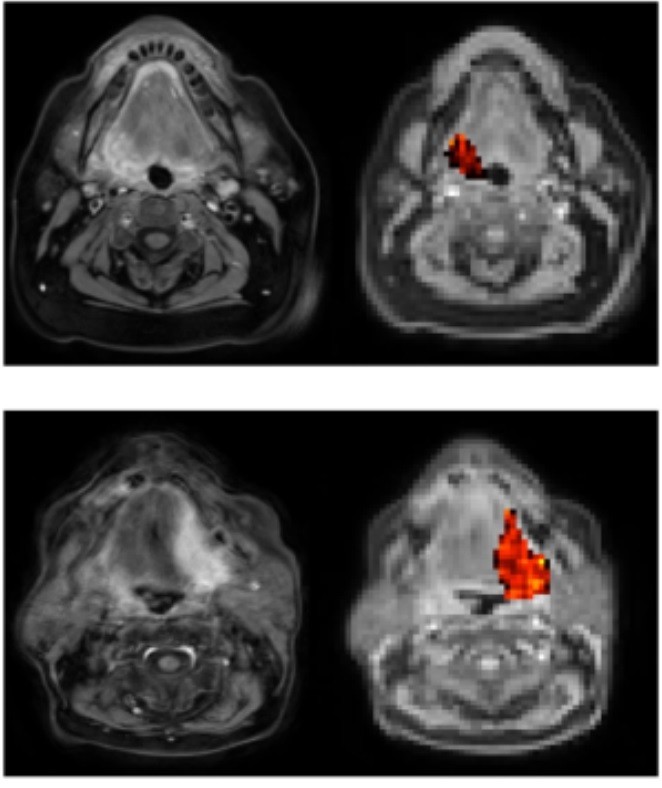Congratulations to Dr Michael Dubec (Principal Clinical Scientist, The Christie NHS Foundation Trust and The University of Manchester), Professor James O’Connor (Professor of Radiology, The University of Manchester and The ICR) and colleagues on their recent publication ‘First-in-Human Technique Translation of Oxygen-Enhanced MRI to an MR Linac System in Patients with Head and Neck Cancer’ which was published in Radiotherapy and Oncology June 2023.
The study, funded by the Medical Research Council, has reported the first-in-human translation of volumetric, dynamic oxygen-enhanced MRI (OE-MRI) onto a Magnetic Resonance Linear Accelerator (MR-Linac) system. The highly sophisticated MR-Linac system combines an MRI scanner to precisely locate tumours and accurately deliver radiotherapy to ensure treatment precision.
Eleven patients with head and neck cancer, were successfully scanned on the MR-Linac system and maps of oxygen levels in tumours were obtained, yielding repeatable hypoxia biomarkers. Data were equivalent on the diagnostic MR and MR Linac systems. The identification of hypoxic areas in tumours using OE-MRI has potential to guide future clinical trials of biology guided adaptive radiotherapy.
The study has been featured in The i Newspaper and Evening Standard as well as Physics World.
Professor James O’Connor and Professor Geoff Parker (Professor of Healthcare Engineering, Imaging and Enterprise, Centre for Medical Image Computing, University College London) are also leading the NCITA Exemplar 5 OPAL study, which aims to assess OE-MRI across different platforms and field strengths as well as multicentre repeatability of OE-MRI biomarkers. The group have recently reported the feasibility, repeatability and reproducibility of a dynamic T2*-sensitised OE-MRI protocol for dynamic OE-MRI at 3 T of the lung in healthy volunteers (bioRxiv, 2023). The next stage will involve investigating the role of OE-MRI in adaptive radiotherapy planning in non-small cell lung cancer patients.


